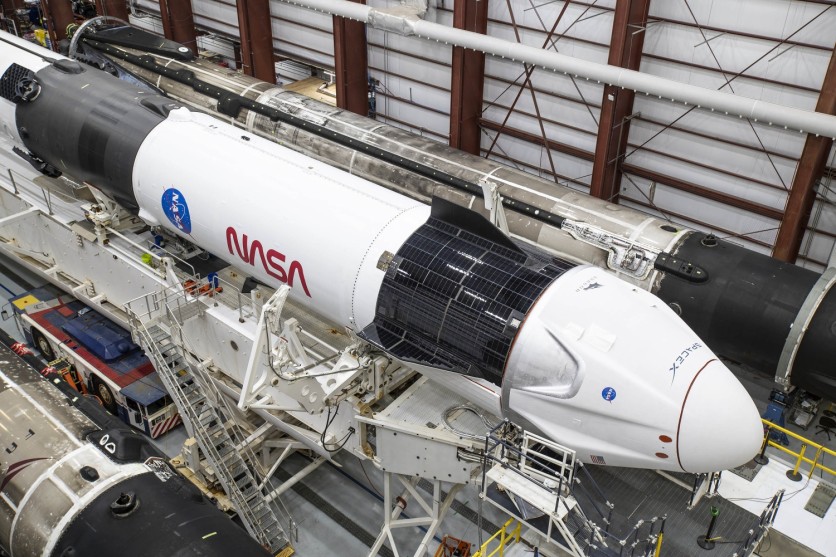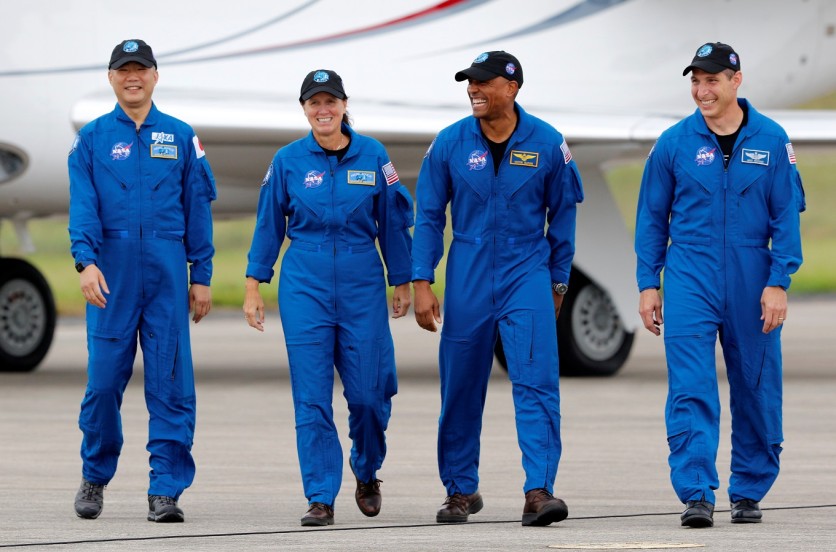Days before another historical launch by SpaceX, the private spaceflight company test-fired the rocket that will carry astronauts to the International Space Station (ISS).

Falcon 9 Briefly Roared to Life
According to Space.com, the Falcon 9 rocket's test-fire was done this Wednesday, November 11, in the National Aeronautics and Space Administration's (NASA) Kennedy Space Center.
Based on the report, the test fire was initially scheduled to happen on Tuesday, November 10, but the company had to replace a purge valve on the rocket's second stage, so SpaceX opted to push back the test 24 hours.
The Falcon 9 rocket was brought to life for a brief moment on Wednesday afternoon for the static-fire test, which is part of the standard procedures before a rocket's liftoff.
During the test, the Falcon 9 was held down while its first-stage engines were briefly fired to ensure that everything is working properly and that the rocket is ready to fly, generating 1.7 million pounds of thrust all the while keeping the booster firmly standing its ground.
Read More : WATCH Launch America LIVE! NASA's Crew-1 Dragon Aboard SpaceX Ship All Set for Space Mission!
Successful Test, Launch Next
After the test was done, Elon Musk's company shared a tweet to its followers on the social media platform to update them that the test fire was a success and that the historic launch will proceed as scheduled on Saturday, November 14, at 7:49 PM EST.
As the last major milestone, the test also commenced the countdown for the highly-anticipated astronaut launch that will happen this weekend, which is the first operational mission of SpaceX's Dragon crew capsule called the Crew-1, which will bring one Japanese and three NASA astronauts to the ISS.
Furthermore, the mission marks the company's 21st mission this year alone as well as the 1st long-duration mission to have launched from the Florida launch site.
The launch was initially slated to happen on October 31, but the company decided to push back the launch for two weeks to allow them to replace one of the booster's engines for its first stage.
New Launcher and Capsule for SpaceX Crew-1

The company will be using a brand new Dragon capsule and launcher for the mission, which follows the historic SpaceX Demo-2 mission that brought two NASA astronauts aboard the ISS for a two-month stay.
After the mission's success, the space agency has given the company the go signal to use the capsule and the rocket for future missions.
With that, it has been reported that SpaceX's next mission, Crew-2, will be using the capsule from the Demo-2 mission and the rocket from the Crew-1 mission when it launches to space sometime next year.
The company has also updated its followers that its teams will continue monitoring the weather.
SpaceX is expecting the Falcon 9 rocket's first stage to land back at Florida's Cape Canaveral Air Force Station, where it will lift off at around nine minutes after the launch.
Moreover, SpaceX is also planning to land the first-stage booster on "Just Read the Instructions," one of the two massive drone ships that are stationed in the Atlantic, and if they are successful, this will mark the 65th successful recovery of the booster.
Related Article : SpaceX Crew Dragon's Members Give Statements Before Historic Launch, Team Arrives in Florida
This article is owned by Tech Times
Written by: Nhx Tingson
ⓒ 2026 TECHTIMES.com All rights reserved. Do not reproduce without permission.




